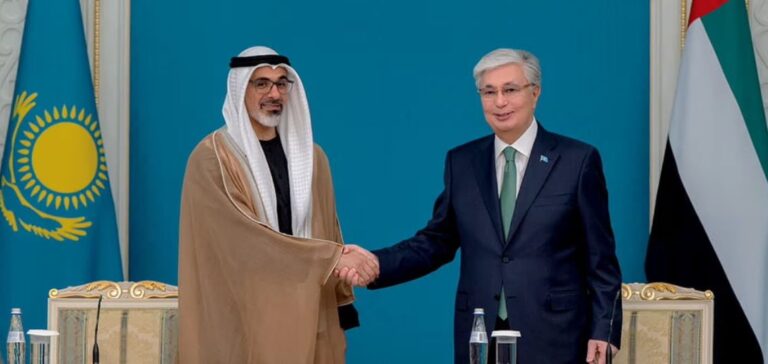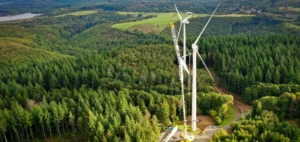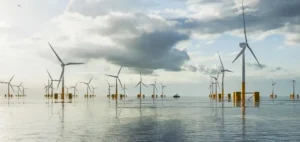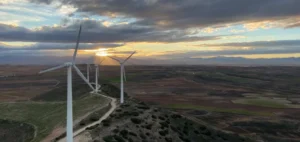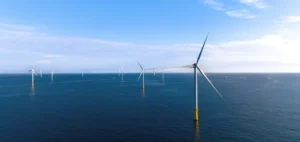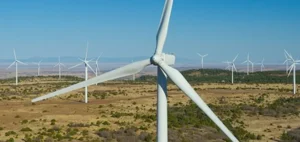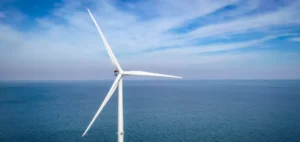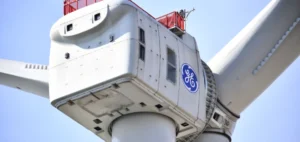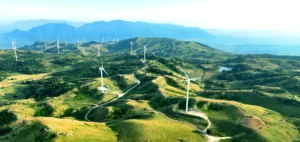Masdar, the UAE-based renewable energy company, has signed an agreement with Samruk-Kazyna, Kazakhstan’s sovereign wealth fund, to develop several energy projects in the country. The announcement was made during the official visit of the Crown Prince of Abu Dhabi, Sheikh Khaled bin Mohamed bin Zayed Al Nahyan, to Astana. The project includes up to 500 megawatts (MW) of baseload renewable energy and a battery energy storage system (BESS) with a capacity of up to 2 gigawatts (GW).
This partnership complements an ongoing Masdar project: a 1 GW wind farm in the Jambyl region, combined with a 600 megawatt-hour (MWh) energy storage facility. The project is described as one of the largest of its kind in Central Asia and marks another step in Masdar’s regional engagement.
A strategic agreement between Abu Dhabi and Astana
The signing of this agreement was accompanied by the ratification of an intergovernmental agreement between the United Arab Emirates and Kazakhstan for the development of the 1 GW wind farm. According to authorities from both countries, this legal step is essential to ensure the project’s advancement and to reinforce bilateral cooperation in the energy sector.
UAE Minister of Industry and Advanced Technology Dr Sultan Ahmed Al Jaber, also Chairman of Masdar, stated that the agreement strengthens an already established energy partnership between the two nations. Kazakh representatives highlighted the agreement as a key collaboration for the development of low-carbon energy production.
Kazakhstan’s long-term energy goals
Kazakhstan aims to generate 15% of its electricity from renewable sources by 2030 and 50% by 2050. The agreement with Masdar is part of the country’s national strategy to modernise its energy mix through the integration of advanced technologies and the development of suitable infrastructure.
In addition to this partnership with Samruk-Kazyna, Masdar had already announced at COP28 an agreement with several Kazakh entities, including W Solar, Qazaq Green Power (QGP), and the Kazakhstan Investment Development Fund, to support the same 1 GW project. The power purchase agreement and the investment deal were signed at COP29 in Baku. Construction is scheduled to begin in 2026.
Regional expansion and Masdar’s ambitions
Masdar is expanding its footprint in Central Asia, a region considered strategic due to its abundant solar and wind resources. The company is also active in Uzbekistan and Azerbaijan. It aims for a global installed capacity of 100 GW by 2030, as part of its international growth strategy.
In parallel, Masdar launched the world’s first gigawatt-scale 24/7 solar and battery storage project this year in Abu Dhabi. The project includes a 5.2 GW (DC) solar power plant coupled with a 19 gigawatt-hour (GWh) BESS, designed to deliver up to 1 GW of baseload power daily.


